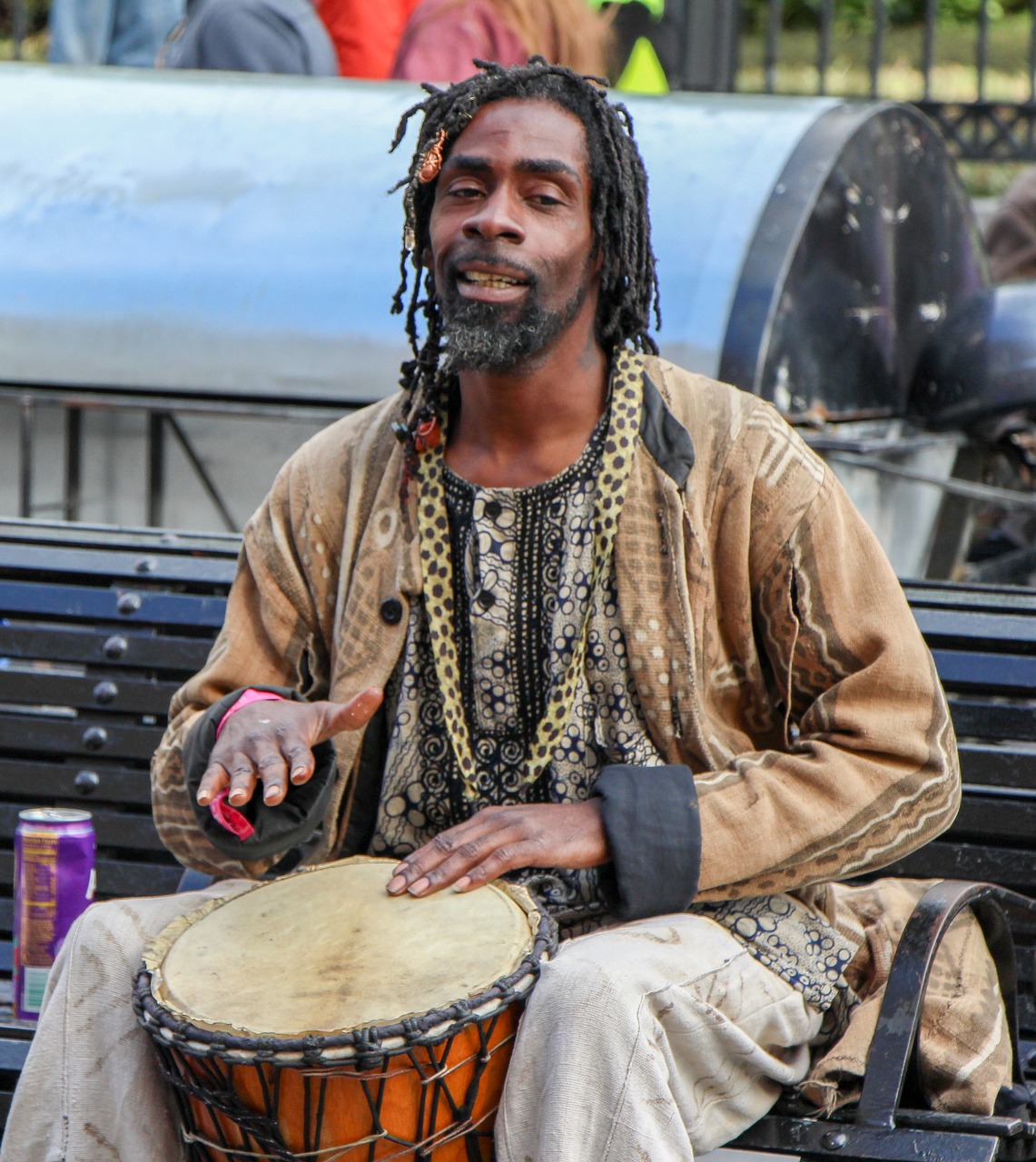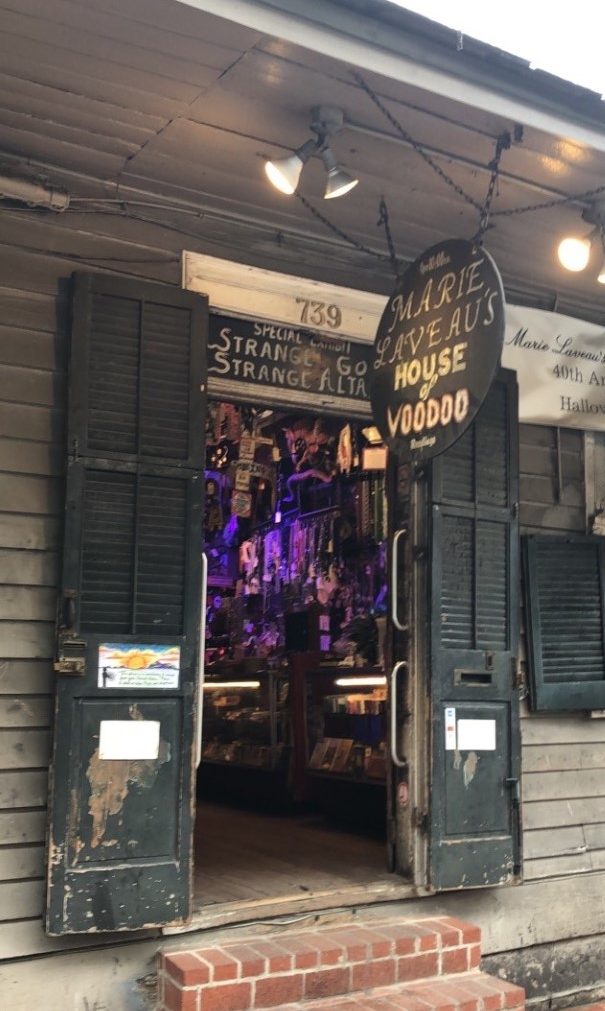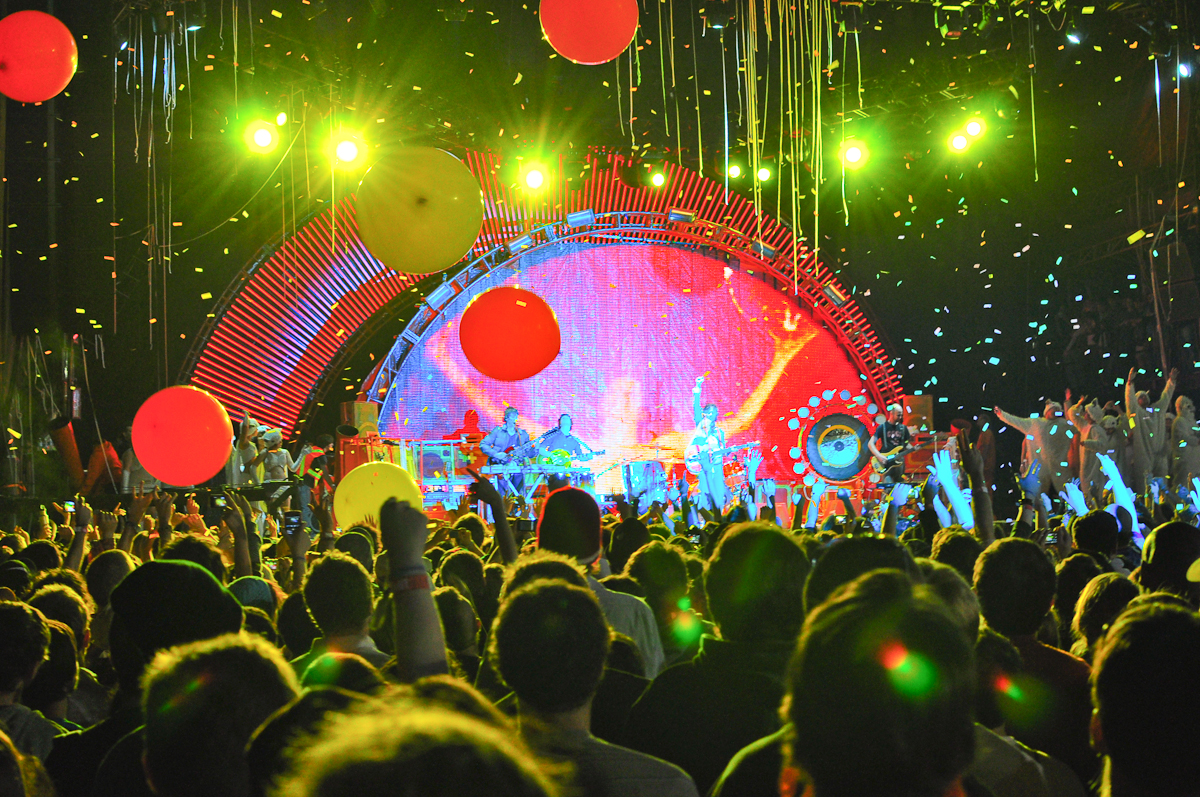
A man playing the bongo. Photo credit: Pixabay
There is an enormous aspect of the history of Louisiana that has essentially been neglected: the role of women, particularly the contributions of Black women, have been completely disregarded in all New Orleans Times Picayune articles in January of 1841. There has been little evidence to suggest that women, specifically Black women, were respected, cared for, or even acknowledged at that time. This is especially interesting as Marie Laveau, a free Black woman born in 1801, was considered all-powerful because of her dedication to the religion of Voodoo. Voodoo, which began to arise in the 1800s, was not regarded whatsoever in historical articles though it is a large part of New Orleans history. Fortunately, in today’s society, New Orleans takes tremendous pride in their Black history through the music, food, Voodoo, and culture. These identities, however, were not discussed in 1841 newspapers because their traditions were not seen to be as important due to rampant racism at the time.
Historically, there has been little to no representation of black women in New Orleans newspapers aside from stories about escaped slaves and murders. On January 1, 1841, an article was published in the Times Picayune titled, “Fifty Dollars Reward”. The article stated:
“Ran away from the subscriber on the 17th of last month, a Negro Woman, about twenty-two years of age, five feet six or seven inches, broad shouldered, smooth black face, walks very perpendicular, hard countenance, talks French and English, and formerly belonged to Mr. Wilkinson, near the Union Cotton Press. Her name is Judy or Juba, fifty dollars will be paid for her recovery at 383 Magazine street.”
Described down to her walk, this runaway woman was only regarded as newsworthy because she was missing. Treated as if she were a missing pet, this woman was only considered worthy enough to be discussed because she negatively affected the lives of white individuals by attempting to escape.
Furthermore, this advertisement was continuously posted until the 12th of January, when it can be presumed that she was either found or no longer considered important to the Times Picayune. However, from the 1st of January to the 12th, she was considered important enough to her master and other involved persons to be repeatedly written about.
Black women were not the only black community that was disregarded in New Orleans newspapers. Individuals who practiced the Voodoo religion also lacked representation, despite being incredibly important to many individuals and also being intensely interesting. There was no representation in Times Picayune articles of 1841, and because white individuals rarely practiced anything other than Christianity and Catholicism, many new religions were not accepted.

Marie Laveau’s house of voodoo
The history of New Orleans Voodoo begins in 1719 when the first slaves arrived in New Orleans from West Africa, other regions of the United States, and the Caribbean. A significant number of slaves also came from Haiti, where Voodoo had already become the national religion.
To many slaves, Voodoo was a way of life. Voodoo helped individuals navigate the challenges of life, understand the clear boundaries between life and religion, and, “respect human dignity and the elderly, care for the poor, sick, widows, and orphans.”. Ritual drumming, dancing, rituals, and music were all at the heart of every person who practiced Voodoo.
However, despite this up-and-coming religion being an incredibly historical and monumental change for many slaves, it was never once discussed in the month of January’s Times Picayune from 1841. In fact, it was actually admonished.
“Voodoo was suppressed in 1811 when city officials banned slave gatherings, except in designated areas such as Congo Square. This allowed for close monitoring and control of the growing African population”. Although slaves continued to practice Voodoo both publicly and privately, it was demonized by white individuals. Since its arrival in America, Voodoo has been used to perpetuate damaging stereotypes of the black community. Through word of mouth, stories of Voodoo told by white individuals were used to portray black people as primitive and dangerous. Due to the fact that there was no representation of this religion, white individuals were never exposed to the true practices that were included in Voodoo and continued to paint black people as a threat to civilization, safety, and to their freedom.
To slaves in New Orleans, both Black women and Voodoo were incredibly important, yet to the white population, this did not ring true. The self-proclaimed “Pope of Voodoo,” Marie Laveau, was born in 1801 and was considered the most influential practitioner of the magical arts. A free person of color living in New Orleans, Marie Laveau was a trailblazer for enslaved women. She created spaces that were protected and safe for all that lived with or visited her. She was filled with compassion and strong religious faith and had a clear intention to help people in her community. She would attend gatherings in Congo Square on Sundays and offer advice and service to her community, sing and perform spiritual practices, and partake in the celebrations. Marie Laveau wielded tremendous power in her community, although she was regarded entirely differently in white communities.
“A local newspaper once referred to her as ‘the notorious hag who reigns over the ignorant and superstitious as the Queen of the Voodoos.”. Due to racism and a natural tendency to reject the unfamiliar, there were descriptions of Marie Laveau hosting “drunken orgy ceremonies”, and that she was wicked and satanic. So although Marie Laveau was talked about among white communities, she was not accepted because she was both a black woman and practiced Voodoo. She was admonished and maliciously shamed publicly by her white counterparts for being adored, admired, and supported by her local black communities.

Voodoo Festival New Orleans: Voodoo Experience 2009
So why is New Orleans so proud of their black roots and their misrepresentations of Voodoo when they have not historically written about it? Not only is this due to a history of racism and the rejection of new ideas, but also a lack of interest to celebrate and learn about other communities and ethnic groups. The fictional version of Voodoo that white individuals have historically created places violence at the center of the religion, creating a false and perverted imagined form of Voodoo that does not resemble the spiritual practices of actual believers. The lack of recognition for slaves and black individuals created an overall generalization among white communities that these individuals do not deserve to be talked about, listened to, or even thought about. Black people are forced to advocate for themselves but are often turned down and not supported by other ethnic groups in the media, making it nearly impossible for their voices to be heard.
Moving away from 1841 and into the present day, there is still a tremendous amount of work to be done in terms of representation for black populations, the religion of Voodoo, and black women. The many cultural differences between black communities have formed the city of New Orleans, making it beloved, diverse, and unique. Black culture is at the root of New Orleans, yet is often downplayed or disregarded because it does not revolve around the accomplishments of white men. Black women have been an afterthought, despite some being powerful religious leaders like Marie Laveau. Voodoo is thought of today as either a music festival, “spooky witchcraft”, or a way to seek revenge against another person. It has never been taught like other religions and has become more of a commercial investment in the city of New Orleans. Although it is important to constantly acknowledge the roots of history, particularly the achievements of slaves and other black individuals, it will be a, albeit worthy, struggle to combat racism, an unwillingness to learn, and a lack of empathy for one another.
 NOLAbeings
Multimedia artist Claire Bangser created NOLAbeings as a portrait-based story project that marries...
NOLAbeings
Multimedia artist Claire Bangser created NOLAbeings as a portrait-based story project that marries...
 Data corner: Adobe Suite (create a PDF, social media graphic, presentation, edit a photo and video
Data corner is where you go to work with analytics and top tech skills. It takes on everything from PERL and SQL to Canva and Sprout Social.
Data corner: Adobe Suite (create a PDF, social media graphic, presentation, edit a photo and video
Data corner is where you go to work with analytics and top tech skills. It takes on everything from PERL and SQL to Canva and Sprout Social.

The way you presented complex information so simply is remarkable. grocery cashier
Drawing attention to these overlooked histories is crucial to a more comprehensive understanding of block blast‘s past.